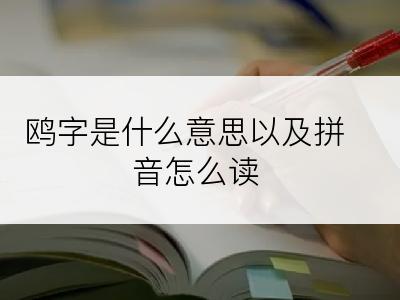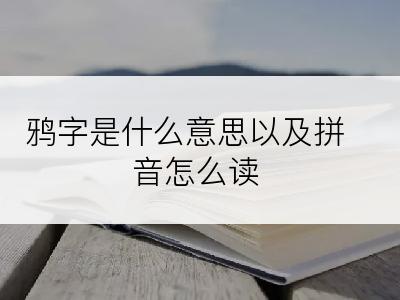fur的翻译与解释是什么
发布于 2023-07-22 13:02:26
浏览 206

详情:
1、
fur
2、
音标:英 [fɜː] 美 [fɝ]
3、
解释:
4、
n. 皮,皮子;毛皮;软毛
5、
n. 水垢
6、
vt. 用毛皮覆盖;使穿毛皮服装
7、
n. (Fur)人名;(法)菲尔;(瑞典)富尔
8、
中文词源:
9、
fur 毛皮来自Proto-Germanic*fodram,鞘,衬里,进一步来自PIE*pa, 保护,喂养,词源同food, fodder.
10、
英文词源:
11、
fur
12、
fur: [14] Old English did not have a distinct word for ‘animal’s hair’ – the nearest approach to it was fell ‘animal’s hide’. Then in the 13th century English acquired the verb fur ‘line with fur’ from Anglo-Norman *furrer or Old French forrer ‘encase, line’. These were derivatives of the Old French noun forre ‘sheath, case’, a loanword from prehistoric Germanic *fōthram ‘sheath’, which in turn goes back to the Indo-European base *pō- ‘protect’.
13、
In the 14th century the new English verb was taken as the basis for a noun, which originally meant ‘trimming for a garment, made from fur’, or more loosely ‘garment made from fur’; it was not until the 15th century that it was used for ‘animal’s hair’.
14、
fur (n.)
15、
late 14c. "trimming or lining of a garment" (implied c. 1300 in surname Furhode "fur hood"), probably from Old French forrer, fourrer "cover with fur, line (clothing)," in general "to cover, fill with," from fuerre "sheath, scabbard" (via notion of "covering"), from Frankish *fodr or another Germanic source, from Proto-Germanic *fodram "sheath" (cognates: Old Frisian foder "coat lining," Old High German fotar "a lining," German Futter, Gothic fodr "sword sheath"), from PIE root *pa- "to protect, feed" (see food (n.)).
16、
First applied c. 1400 to the hairy pelt of an animal, whether still on the animal or not. The Old French noun might have had the sense "hide, fur, pelt" (and thus might serve as the immediate source of the English noun), but this is not attested. Absent this, the sense transfer from the lining to the material that goes to make it probably happened in English. As an adjective from 1590s. I'le make the fur Flie 'bout the eares of the old Cur. [Butler, "Hudibras," 1663]
17、
fur (v.)
18、
c. 1300 (implied in furred), from fur (n.) or Old French fourrer "to line." Related: Furring.
19、
双语例句:
20、
1. We were amused to see how assiduously the animal groomed its fur.
21、
看着这只动物如此认真地梳理自己的毛,我们被逗乐了。
22、
来自柯林斯例句
23、
2. Mrs Brown wrapped the thinly clad man in her fur coat.
24、
布朗夫人用自己的皮大衣把那个衣衫单薄的男子裹住。
25、
来自柯林斯例句
26、
3. Fifty-five foxes were released from a fur farm by animal rights activists.
27、
动物权利保护主义者把55只狐狸从毛皮动物饲养场放了出来。
28、
来自柯林斯例句
29、
4. Wearing fur has become deeply unfashionable.
30、
穿毛皮衣物已经相当过时了。
31、
来自柯林斯例句
32、
5. Its fur is short, dense and silky.
33、
它的毛又短又密,柔软光洁。
34、
来自柯林斯例句
35、
更多相关例句:
36、
the fur trade
37、
毛皮贸易【牛津词典】
38、
a fur farm (= where animals are bred and killed for their fur)
39、
毛皮动物饲养场【牛津词典】
40、
The animal is hunted for its fur.
41、
狩猎这种动物是为了获取其毛皮。【牛津词典】
42、
fur-lined gloves
43、
毛皮衬里手套【牛津词典】
44、
elegant ladies in furs
45、
穿着裘皮衣服的高雅贵妇【牛津词典】
46、
a fur coat
47、
毛皮大衣【牛津词典】
48、
Oxidized cholesterol may be responsible for furring up the arteries.
49、
氧化胆固醇可能是造成动脉堵塞的元凶。【柯林斯高阶英语词典】
50、
Three of my veins had furred up and I needed a triple bypass...
51、
我有三条静脉出现了堵塞,需要做个三支搭桥手术。【柯林斯高阶英语词典】
52、
The fur will really fly over this.
53、
这个问题将会掀起轩然大波。【柯林斯高阶英语词典】
54、
This creature's fur is short, dense and silky.
55、
这种动物的毛又短又密、丝般柔滑。【柯林斯高阶英语词典】
56、
She had on a black coat with a fur collar...
57、
她穿着一件毛皮领子的黑色外套。【柯林斯高阶英语词典】
58、
Women are also wearing fur again.
59、
女性还重新穿起了皮草。【柯林斯高阶英语词典】
60、
There were women in furs and men in comfortable overcoats.
61、
女人们穿着毛皮大衣,男人们穿着舒适的外套。【柯林斯高阶英语词典】
62、
Last week's meeting of the 1922 Committee set the fur flying again on the Tory backbenches...
63、
1922 年委员会上个星期的会议又一次引发了保守党后座议员激烈的争吵。【柯林斯高阶英语词典】
64、
Fur is soft to the touch.
65、
毛皮摸起来很柔软.【《现代英汉综合大词典》】
66、
And when the night comes down Can you call your house a home.
67、
独自一人,夜晚来临,难道你可以牵强的把你的房子当作家庭么?【期刊摘选】
68、
Few substances can equal fur as an insulator.
69、
作为绝缘体很少有其他材料能与动物皮毛相媲美.【《简明英汉词典》】
70、
A cat's fur is soft to the touch.
71、
猫的毛摸上去很软.【《简明英汉词典》】
72、
This fur coat is a bit expensive, but you get your money's worth.
73、
这件毛皮外衣是贵了些, 但你这钱花得值.【《简明英汉词典》】
74、
Now it's time to store away your fur coats for the summer.
75、
你该把你的皮衣收藏好过夏天.【《简明英汉词典》】
76、
A cat has silky fur.
77、
猫有柔滑如丝的毛.【《简明英汉词典》】
78、
Cats are covered with soft fur.
79、
猫有一身细软的毛皮.【《简明英汉词典》】
80、
This fur coat is expensive.
81、
这件皮大衣价格高昂.【《现代汉英综合大词典》】
82、
We used the seal's fur for coats.
83、
我们用海豹皮做大衣.【《简明英汉词典》】
84、
In lapping up a fur, they always put the inner side outwards.
85、
卷毛皮时, 他们总是让内层朝外.【《简明英汉词典》】
86、
She was flaunting her new fur coat.
87、
她正在夸耀她那件新的皮大衣.【《简明英汉词典》】
88、
Some animals grow thicker fur, or live in tree holes or underground to stay warm.【2017年6月四级真题(第二套)听力 Section C】
89、
Most animals protect themselves from the sun with fur.【2019年6月六级真题(第一套)听力 Section C】
90、
So we evolve the ability to sweat plentifully and lost most of our fur.【2019年6月六级真题(第一套)听力 Section C】
91、
We can make a very good estimate from the fossil record that humans probably evolved naked skin around a million and a half years ago and meanwhile they mostly lost their coat of fur.【2019年6月六级真题(第一套)听力 Section C】
92、
He cut some fur from the family cat to make a brush.【2017年高考英语浙江卷(6月) 阅读理解 阅读A 原文】
93、
When parents bring home a pet, their child gladly bathes it and brushes its fur.【2014年高考英语全国卷1 完形填空 原文】
上一篇:funny的翻译与解释是什么
下一篇:furbelow的翻译与解释是什么


